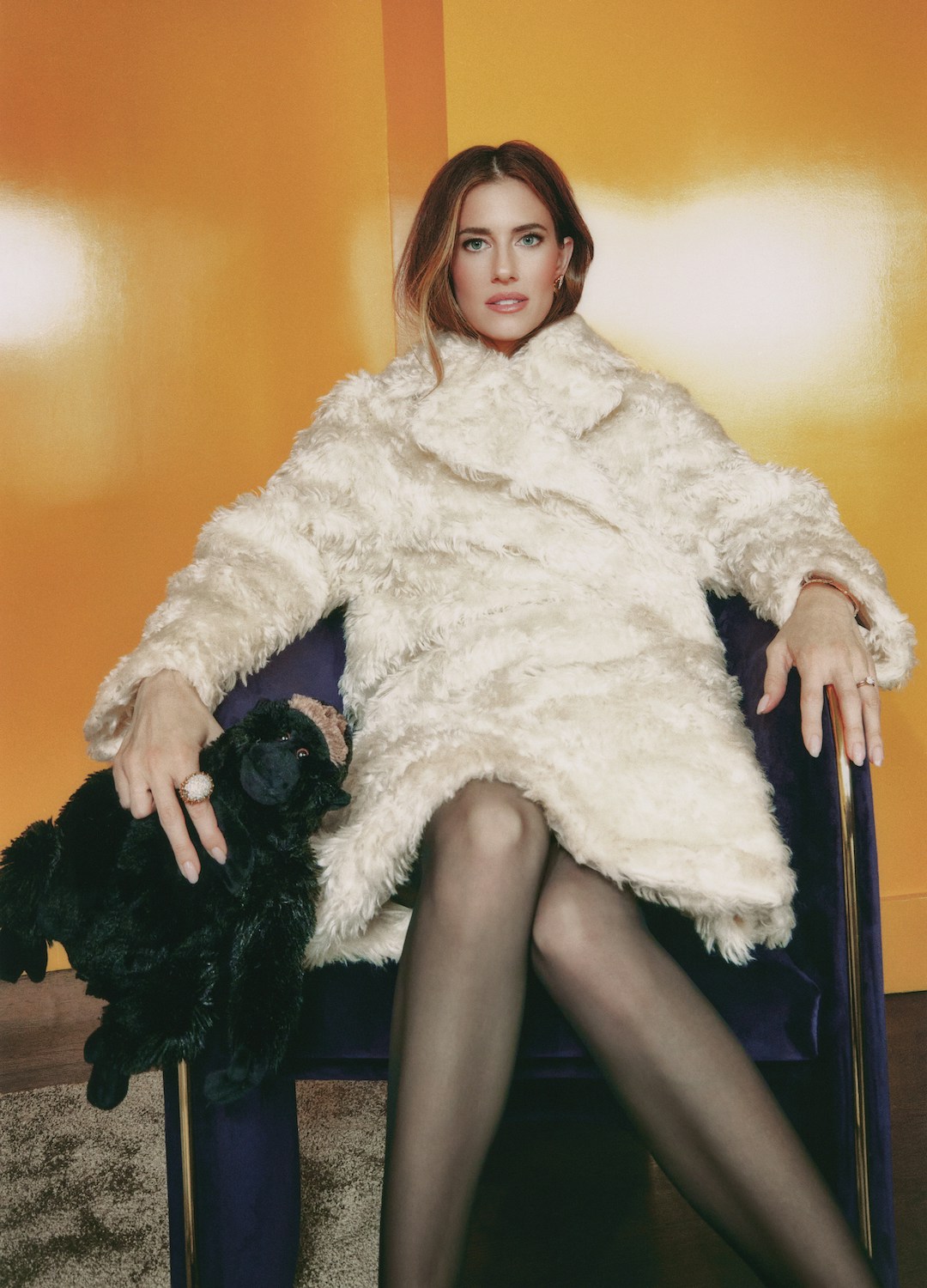
Getting Sticky With Allison Williams
Photos by Ruben Chamorro, Styling by Thomas Carter Phillips, Words by AnaMaria Glavan
Shot at The Manner
Allison Williams is on the balcony of our room at The Manner in Soho. She’s draped in a white mohair coat, a sleek black bodysuit underneath, trying to balance a stegosaurus figurine on her head. When she walks back inside, she nearly trips over a toy car prop. We realize this metaphor for motherhood might feel on the nose but we wanted to write it anyway.
A few moments earlier, when we tell her she looks great, Allison quips that her current uniform is “very far off” from what she looks like as mom. We all snicker at the mutually understood feeling: endless drool on pajama shirts, greasy hair that feels like a phantom limb, somehow omnipresent even in full glam. The photoshoot playlist is Taylor Swift’s 1989 which strikes me as funny because, during our interview later, Allison tells me that she requested Motown for her lowercase-emergent-C-section. Ultimately, they forgot to play it, which is probably better off. “A weird energy to be awake during surgery while ‘I know you wanna leave me…’ is playing in the background,” she adds.
It’s a fun contradiction for Williams, an actress whose characters have been nothing short of iconic: Marnie from Girls, Rose in Get Out, Gemma in the M3GAN franchise, and now, Morgan Grant in Regretting You, a Hooververse role that feels like a juicy DeuxMoi thread captured on big screen. (We at Spread the Jelly <3 family drama.) She’s also the host of Landlines, a shame-extinguishing podcast she started alongside her lifelong best friends, Hope and Jaymie.
Below, we talk about all of it: rawdogging a Caesarean birth without anxiety meds, the surreal aftermath of major surgery, and how so many of the characters she’s played carry pieces of herself. But the heart of our conversation with Allison is her honesty about connection: that it’s normal to not feel bonded to your child right away. For her, it took time to connect with her now–almost four-year-old son, Arlo. And that, she reminds us, is absolutely okay.
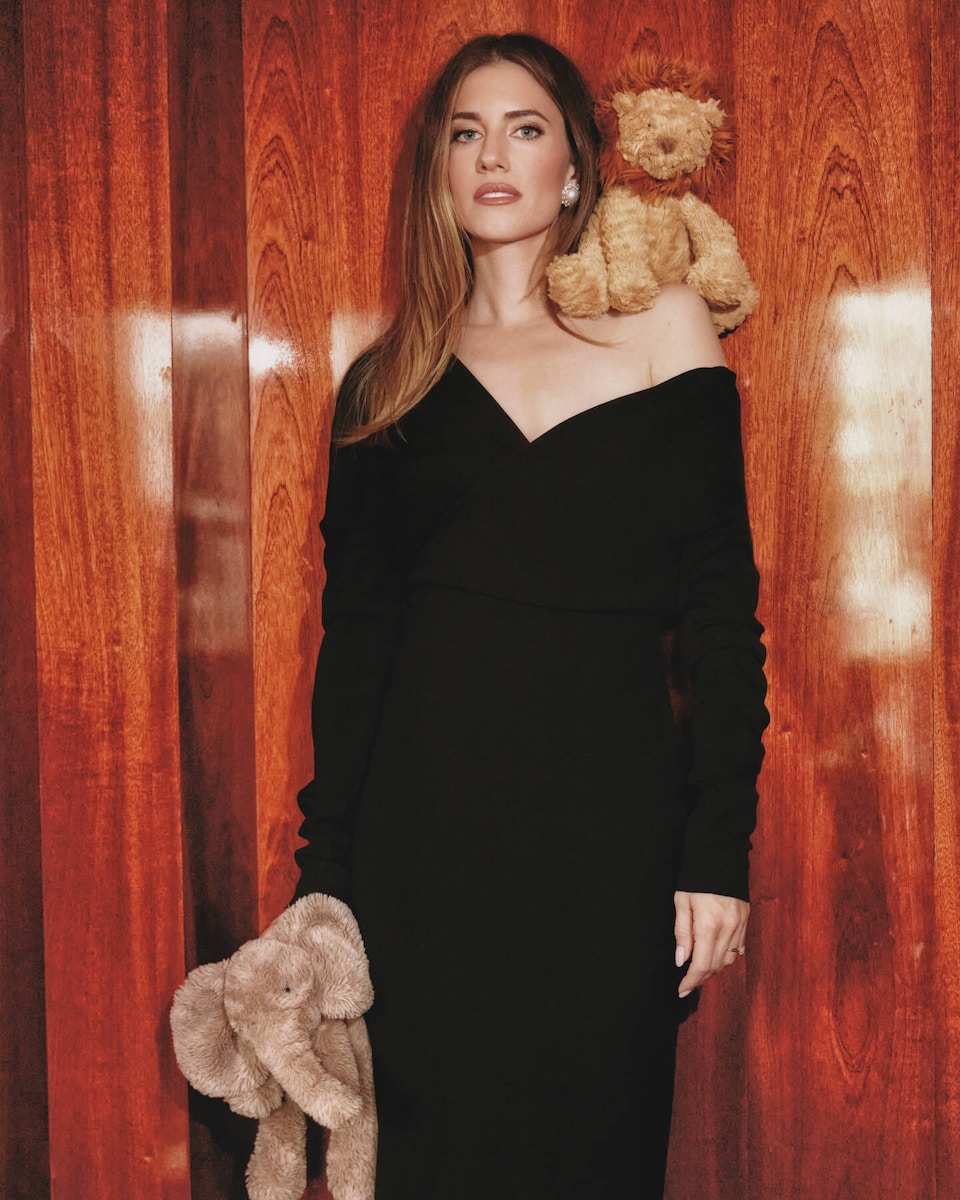
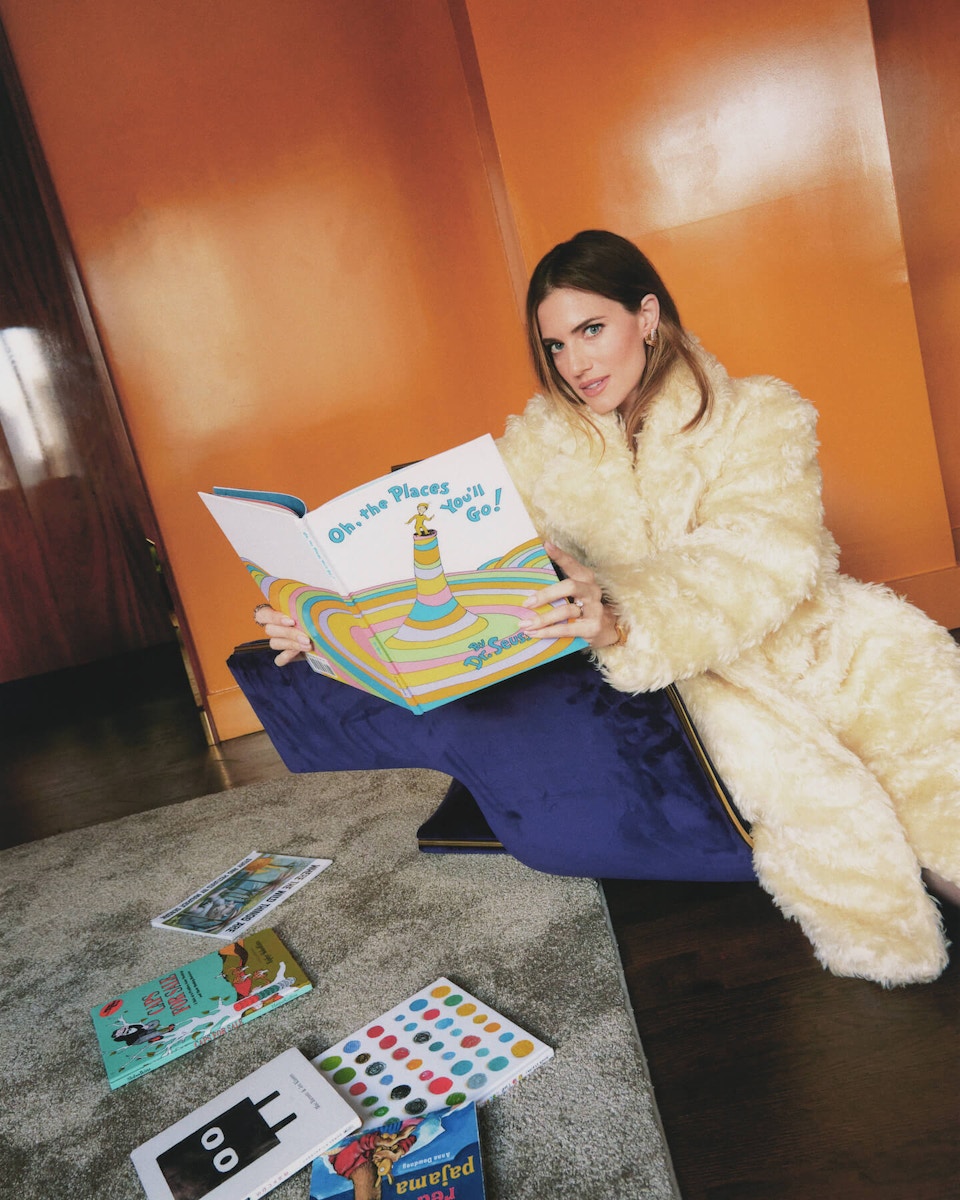
The C-section playlist
I've been on the motherhood journey for three years and nine months, and I don’t know if I’ve ever had another long-term experience in my life with so many different notes to it.
I was one of those very lucky people who loved being pregnant. By the end, the reflux was trying to kill me, everything hurt, and compression socks had completely stopped working. But overall, I loved being pregnant. I loved feeling him in my belly. The process of getting him here, though—my delivery, my C-section, all of it—was so traumatic that in the beginning, I didn’t really feel like his mom.
I was in labor for about 36 hours. His heart rate was dropping with every contraction, and they started to think he was stuck somehow. I also wasn’t dilating—got to four centimeters max, fully effaced—but it was moving so slowly. I labored through the night by myself and I went into the hospital expecting to be at ten centimeters because the pain was unreal. I was expecting the hospital staff to be like: Oh my god! You're 10 centimeters! Your pain threshold is so high. Warrior queen! I was only at two.
I asked for the epidural and I’ve never had to stay so still with such high stakes in my life. That was terrifying. The relief from the pain was incredible, though. Real mixed review from me on that one. Then came the Pitocin, then the peanut, and my husband and I decided to get ready for bed, thinking we’d let the contractions do their thing overnight. We were finally relaxing when the doctor came in and said we may need to prep for a C-section.
After that, everything moved fast. There were suddenly so many people. The anesthesiologist comes back, you’re signing all this paperwork, they’re explaining everything, and you don’t want to hear it. At that point, I started having a full-blown panic attack. I was vibrating with anxiety.
That’s when I first learned that they can’t really give you anything for that level of anxiety until the baby’s out, unless it’s a true emergency C-section and they have to put you completely under. I wish I had asked for something. I remember thinking, I can’t raw dog this experience. I need help. I have an anxiety disorder and my system can’t handle this without support. But I didn’t.
Someone asked what music I want to listen to and I said Motown. I don’t know why I said that. A weird energy to be awake during surgery while “I know you wanna leave me” is playing in the background.
And then you’re awake for surgery. I kept on telling myself: Don’t throw up, stay conscious. And you're kind of aware of everything; it's also very close to your eyeballs and your nose and your mouth, which I hadn’t realized before because I’d only ever seen it portrayed from a side angle, not from first-person POV. The sheet is right there. The surgery is happening very close to my eyeballs.

"I've been on the motherhood journey for three years and nine months, and I don’t know if I’ve ever had another long-term experience in my life with so many different notes to it."
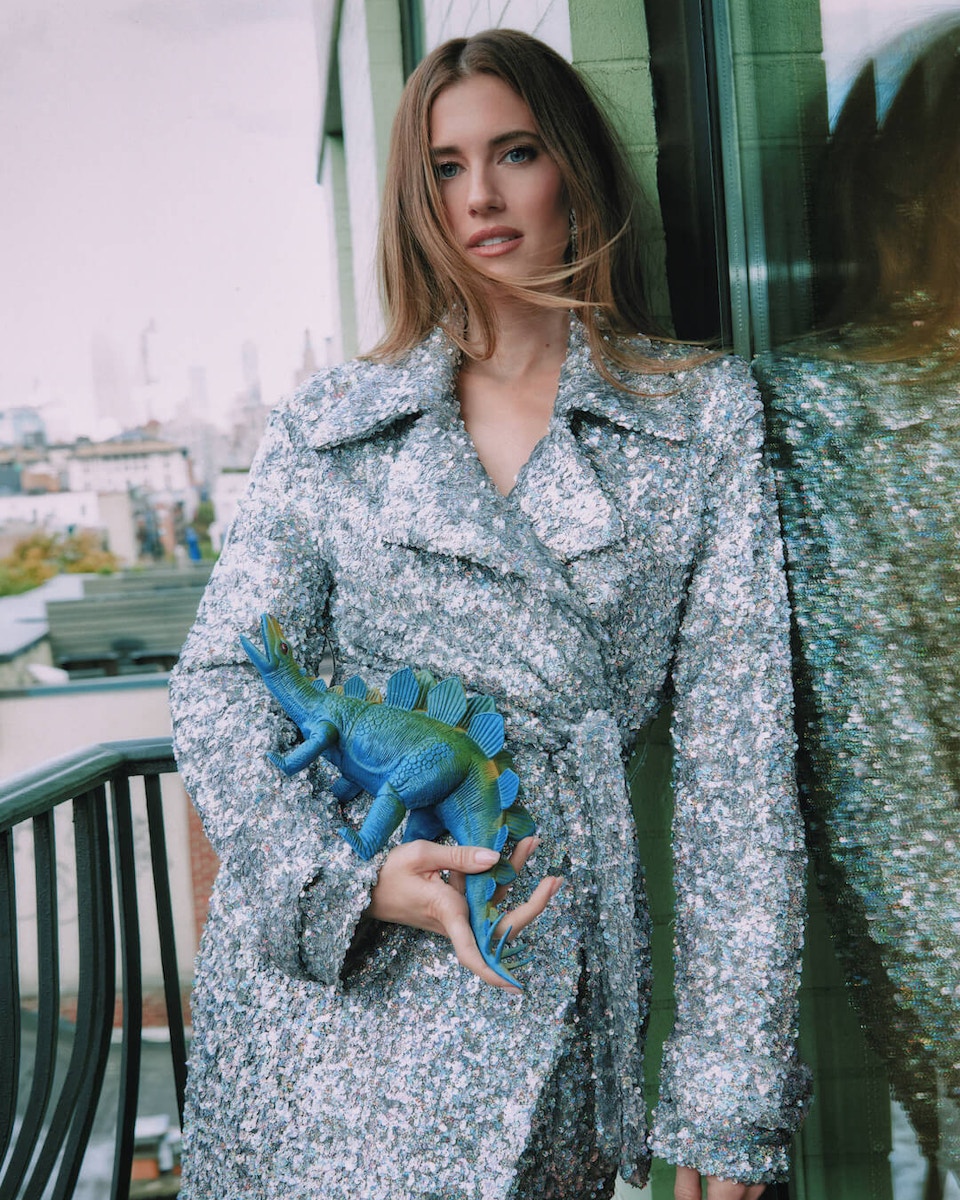
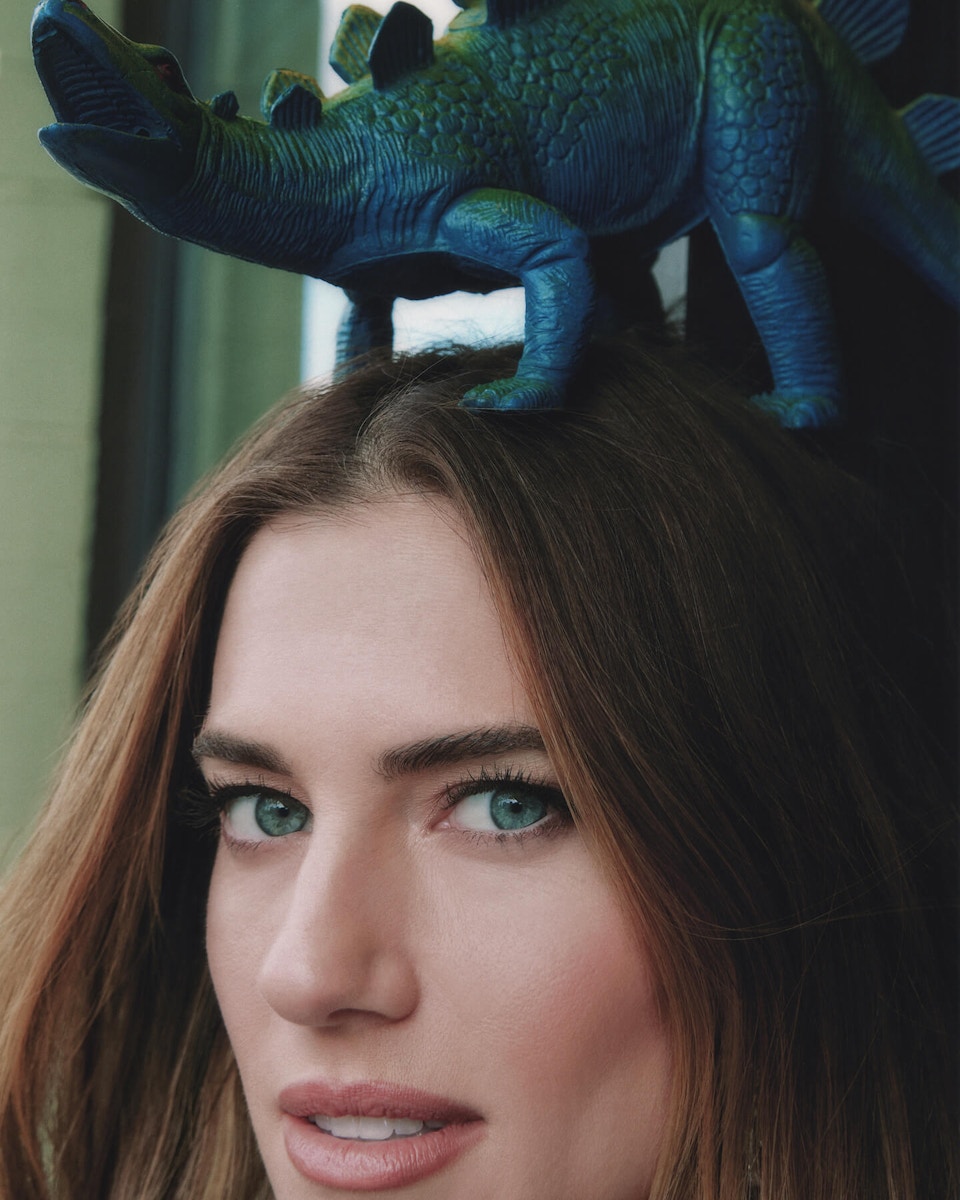
“I’m deeply grateful for it. And I’m also allowed to hate that it happened”
I had been obsessed with the idea of doing skin-to-skin right away, but when you’re on an operating table, you can’t really do that on an operating table. There are pictures of Arlo right beside me after giving birth but I couldn’t see him in my peripheral vision because he was so tiny.
I wanted to feel some control, so I felt this need to immediately breastfeed. I’d never been one of those “breast is best” people (I’ve always believed a fed kid is the best kid, and fuck anyone who says otherwise) but in that moment, it was my way of reclaiming something after everything had gone so wildly beyond where my imagination could go. So I did. He latched, and that became my main relationship with him for a while. I felt a bit like a wet nurse for those first few weeks.
Alexander, my husband, was the one who learned how to diaper and swaddle. I remember waking up that first morning after Arlo was born and seeing his bassinet, knowing I couldn’t lift myself high enough to see his face. I took out my phone and used the camera just to get a peek at him. It’s such a surreal moment when you think, That’s mine now? He was inside me, and now he’s over there. We have to get to know each other all over again.
It’s weird to even talk about, because I feel like there’s still a stigma around certain kinds of birth stories. There’s this unspoken idea that one version of birth is more “respected,” and what I just described is not that version. That can feel isolating.
And my anxiety was not a great match with postpartum depression. That was also compounded with the normal anxiety of having a newborn that you have to keep alive, and that steep learning curve that comes with it. I was personally told so many times to trust my gut, but when you’re dealing with depression, anxiety, and everything else, your gut isn’t always loud enough.
This is an incredible thing our bodies can do, and I’m here—and Arlo’s here—because of the technology of a C-section. So I’m deeply grateful for it. And I’m also allowed to hate that it happened. I just started EMDR (Eye Movement Desensitization and Reprocessing) which I’ve heard is a helpful tool for healing. It took me almost three and a half years to be ready for it.
"That’s when I first learned that they can’t really give you anything for that level of anxiety until the baby’s out, unless it’s a true emergency C-section and they have to put you completely under. I wish I had asked for something. I remember thinking, I can’t raw dog this experience. I need help. I have an anxiety disorder and my system can’t handle this without support. But I didn’t."

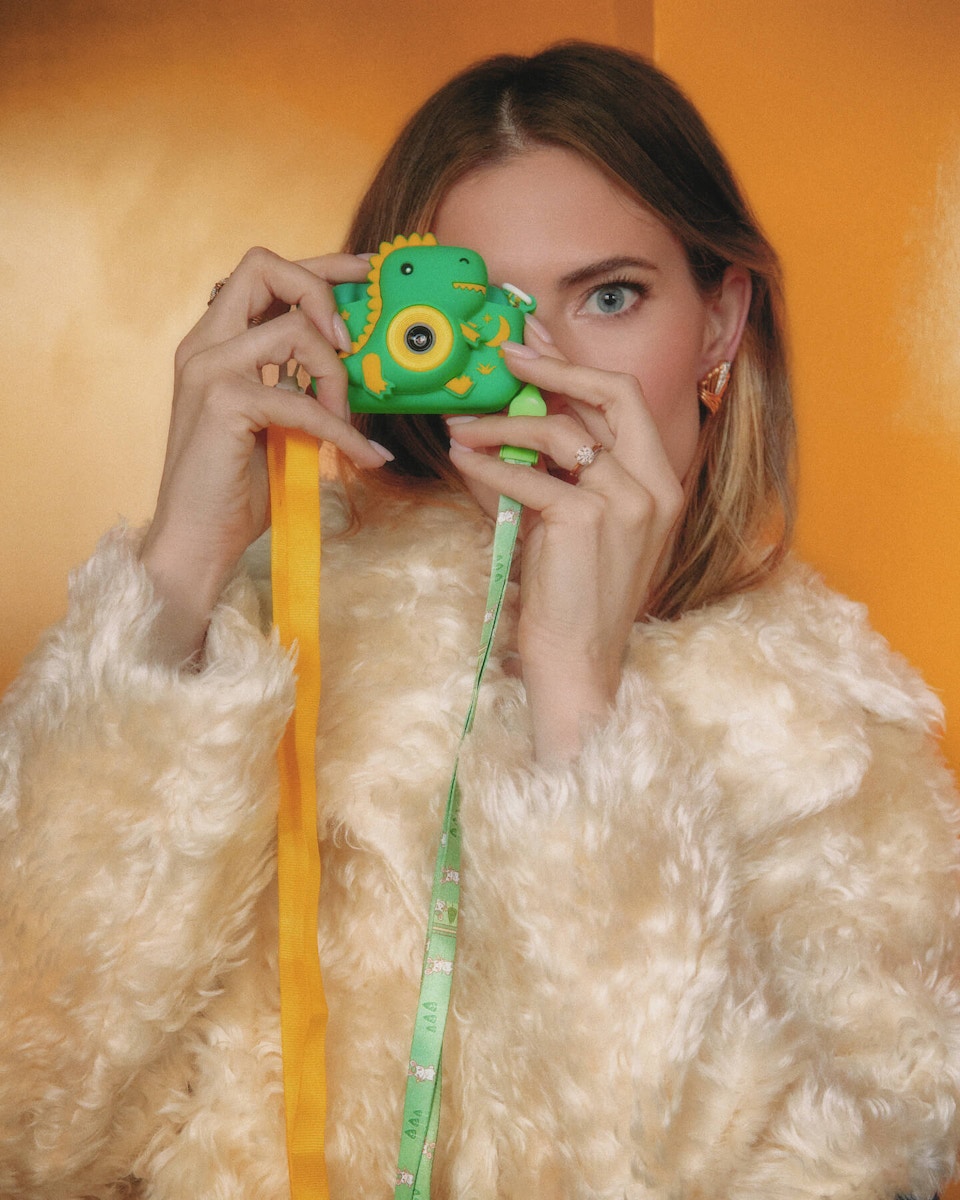
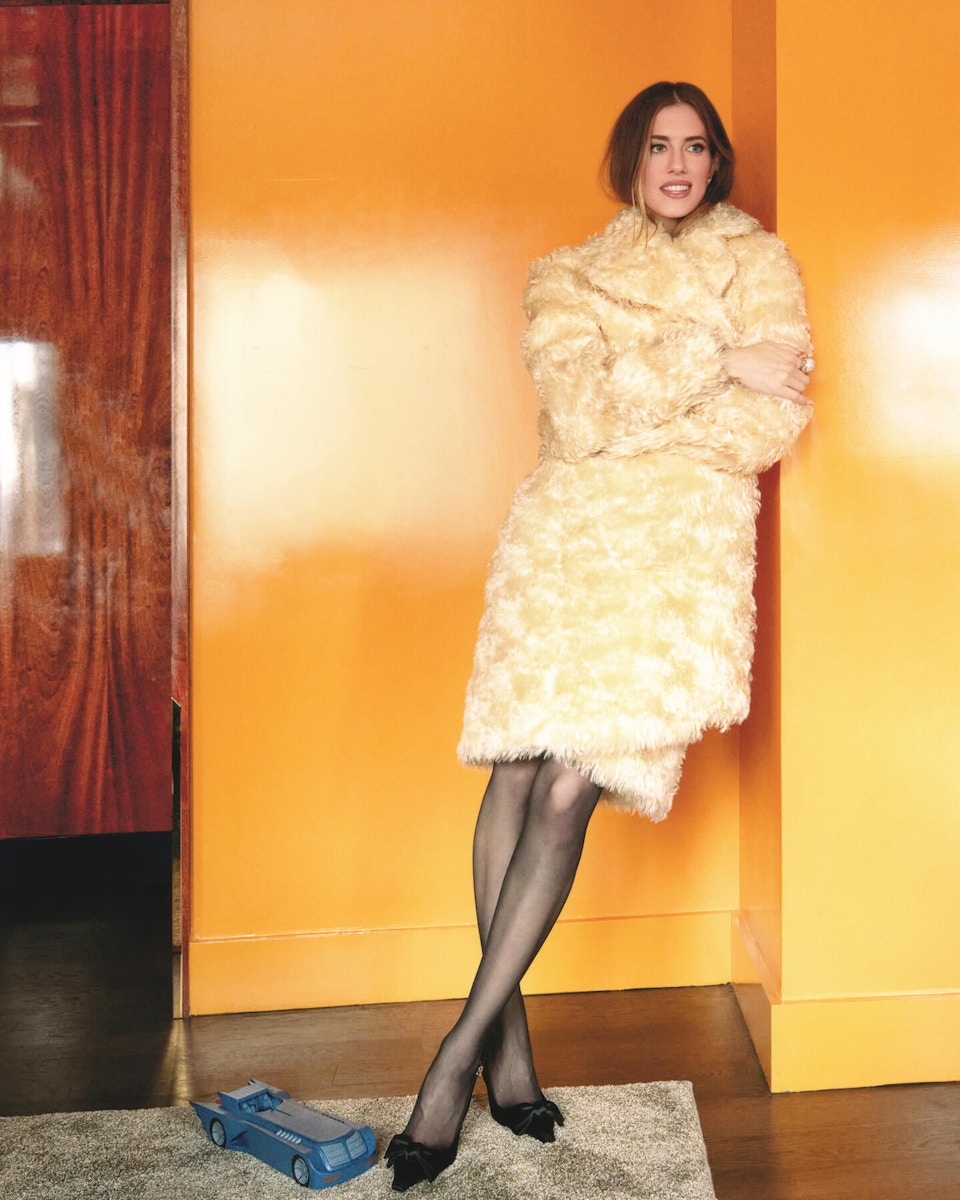
Anxiety as a love language (on behalf of the entire STJ team: same)
Ultimately it’s no use to anyone, nor is it at all interesting, to hear me talk about how much I love my son. Like, that’s the most cuttable thing in an interview. The useful part of all this is knowing that if your experience of motherhood is a slow burn, or worse, starts with trauma or depression, you’re not alone. It’s totally normal.
I’m now completely obsessed with my son in a way I try to keep a lid on but can’t. I have this compulsive need to show people pictures of him or 15-minute-long videos of him talking. We’re so close now, and I’m endlessly grateful for that, but I never want to skip over the part where it took time to get there. It was a long road. About a year and a half.
My poor guy was stuck, not doing well, and had to be surgically delivered while I was awake. Our beginning was full of chaos and fear, and that affected how connected I felt at first. That’s something I want to emphasize: it took time. I loved him deeply from the start, but at first that love felt more theoretical than embodied. When people said they would jump in front of a bus for their kid, my internal reaction would be, I think I would but I don’t know. I’m just meeting him. Anytime something was wrong, though, I panicked. That’s when I realized my love was showing up through anxiety. My anxiety took the wheel.
I’ve met other mothers who didn’t immediately connect with their babies, either. It happens, and there’s always a little bit of shame attached to that feeling. You start to wonder if that feeling is okay. And the answer is yes, of course it is. There’s so much happening in your body after you have a baby; hormonally, it’s chaos.
I’ve noticed that friends who had scheduled C-sections seemed to have a different experience than I did, probably for reasons that make sense. I have friends who had really beautiful births. My friend Caroline once told me she felt empowered by giving birth, and I remember thinking; wow, what an incredible win.

"I’m now completely obsessed with my son in a way I try to keep a lid on but can’t. We’re so close now, but I never want to skip over the part where it took time to get there. I loved him deeply from the start, but at first that love felt more theoretical than embodied. Anytime something was wrong, I panicked. That’s when I realized my love was showing up through anxiety. My anxiety took the wheel."

Watching your kid grow up = scratching a lottery ticket with a metaphorical penny
Playing the mother of a seventeen-year-old daughter [in Regretting You] versus being the mother of an almost-four-year-old son are two completely different experiences.
It helped that I know what it feels like to look at your child and think, I just want to eat you up. And I’ve confirmed with my mom and other moms that that feeling doesn’t go away, even when your kids aren’t little and squishy anymore. That kind of instinctive affection stays.
So I was able to draw from that, but in terms of the mother-daughter dynamic in the film, I leaned more on observation. I have people in my extended family who became mothers in their teens, and watching them with their daughters helped me imagine it.
I wonder what kind of teenager Arlo will be. He keeps surprising me. And when I look back, it always makes sense. He’s been himself since he was in my stomach, in ways I can’t predict moving forward but completely recognize in hindsight. Watching your kid grow up is kind of like scratching off a lottery ticket. Over time, you’re revealing who they already are rather than watching something entirely new form.
I’ve never really believed in the whole new soul/old soul thing, but the minute I saw Arlo, I thought, This dude has been here before. He looked tired, as if this experience wasn’t new. My doctor said that when she took him out, he opened his eyes immediately and looked straight into hers for a few seconds before crying.
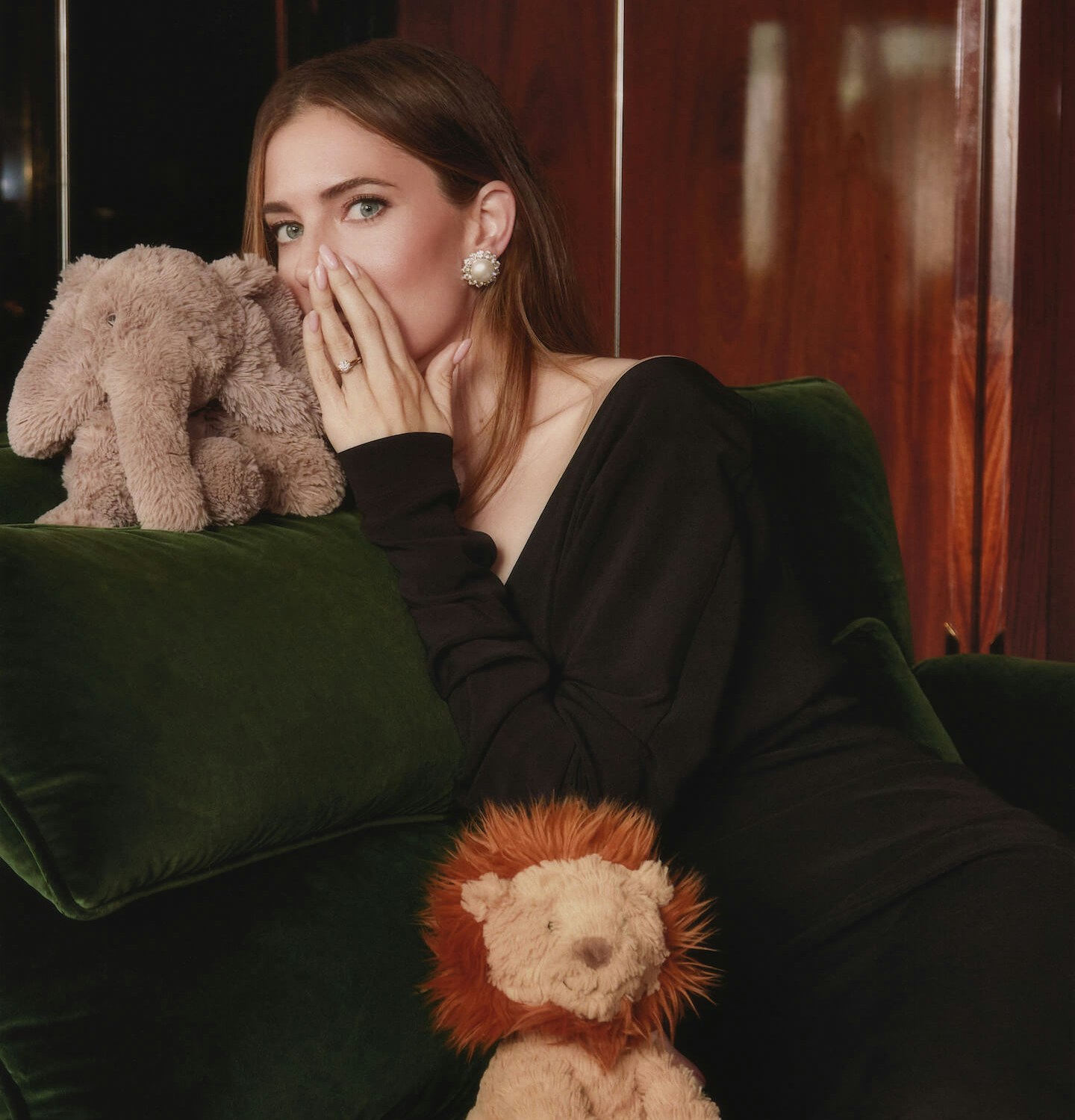
1-800-LANDLINES
I kept asking my friends random questions about cribs and bottles when I was pregnant. Eventually, I put all my mom friends from my hometown into one group chat so I could troubleshoot my parenting questions in one place. The chat stayed active even after Arlo was born. People would drop in with things like, Anyone have a kid with wide feet? What shoes are best? and within minutes there’d be six recommendations for Stride Rite.
It became this living, breathing resource, like a version of ChatGPT tailored to our personal histories. It’s where someone could ask, Do you remember that restaurant where you told me about getting fingered for the first time? and everyone would know exactly what they meant.
And it wasn’t just product recommendations. It became a place for emotional triage. Someone would post, Drop-off went so badly today, I feel awful. Am I ruining my kid by leaving him? and others would jump in to validate them. One of my friends is a therapist, another’s a teacher, and it really helps when someone with credentials can say that separation anxiety is a good marker of healthy attachment. It’s reassuring when anyone tells you that, but it’s even more reassuring when that someone has a degree in it.
I realized that what this chat gave us—community, perspective, expertise—was something worth sharing more broadly. So I decided to harness whatever currency I have from my job and fully exploit my friends Hope and Jaymie, who happen to be that therapist and that former elementary school teacher. They live in Maine and would talk through parenting topics on their 5 a.m. runs (which is completely deranged to me, I could never, not unless I were being chased by a predator).
We’d trade voice notes and over time it crystallized into the idea for a podcast. At first, we called it Is This Normal? because that was the question we asked most often. But we realized the answer was almost always yes. So we thought, since our friendship was born on the phone, why not call it Landlines?
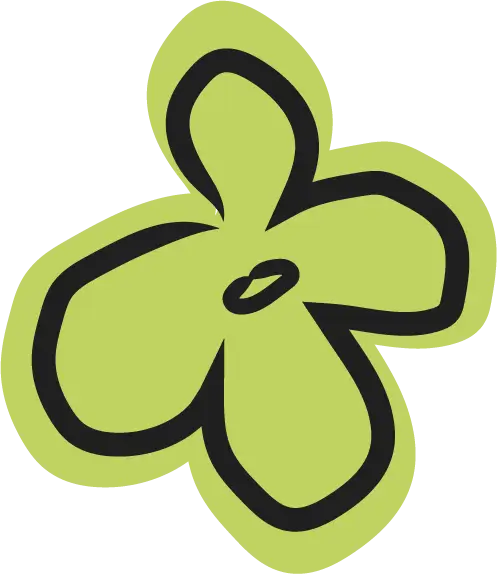
"I realized that what this chat gave us—community, perspective, expertise—was something worth sharing more broadly. So I decided to harness whatever currency I have from my job and fully exploit my friends Hope and Jaymie, who happen to be that therapist and that former elementary school teacher. They live in Maine and would talk through parenting topics on their 5 a.m. runs (which is completely deranged to me, I could never, not unless I were being chased by a predator). "

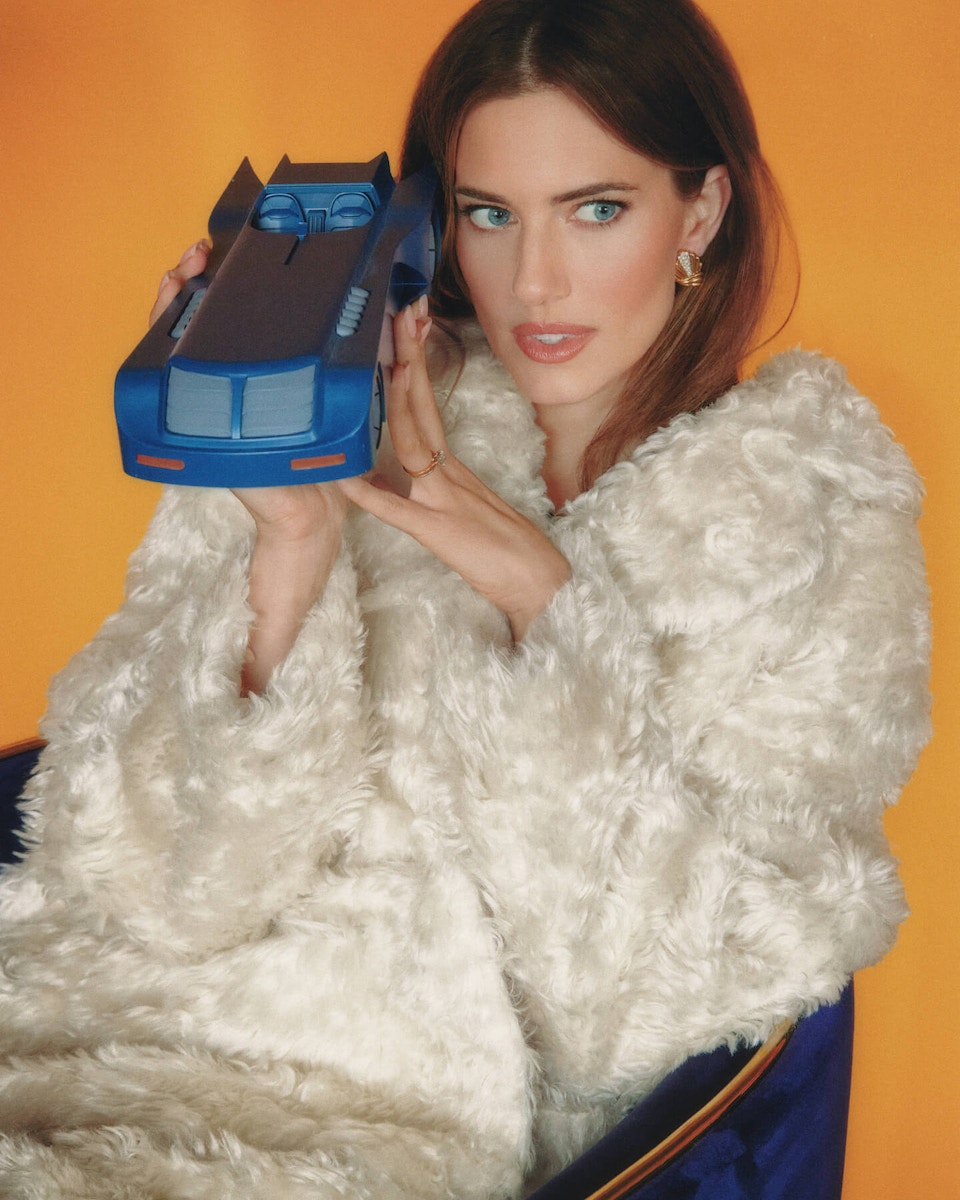
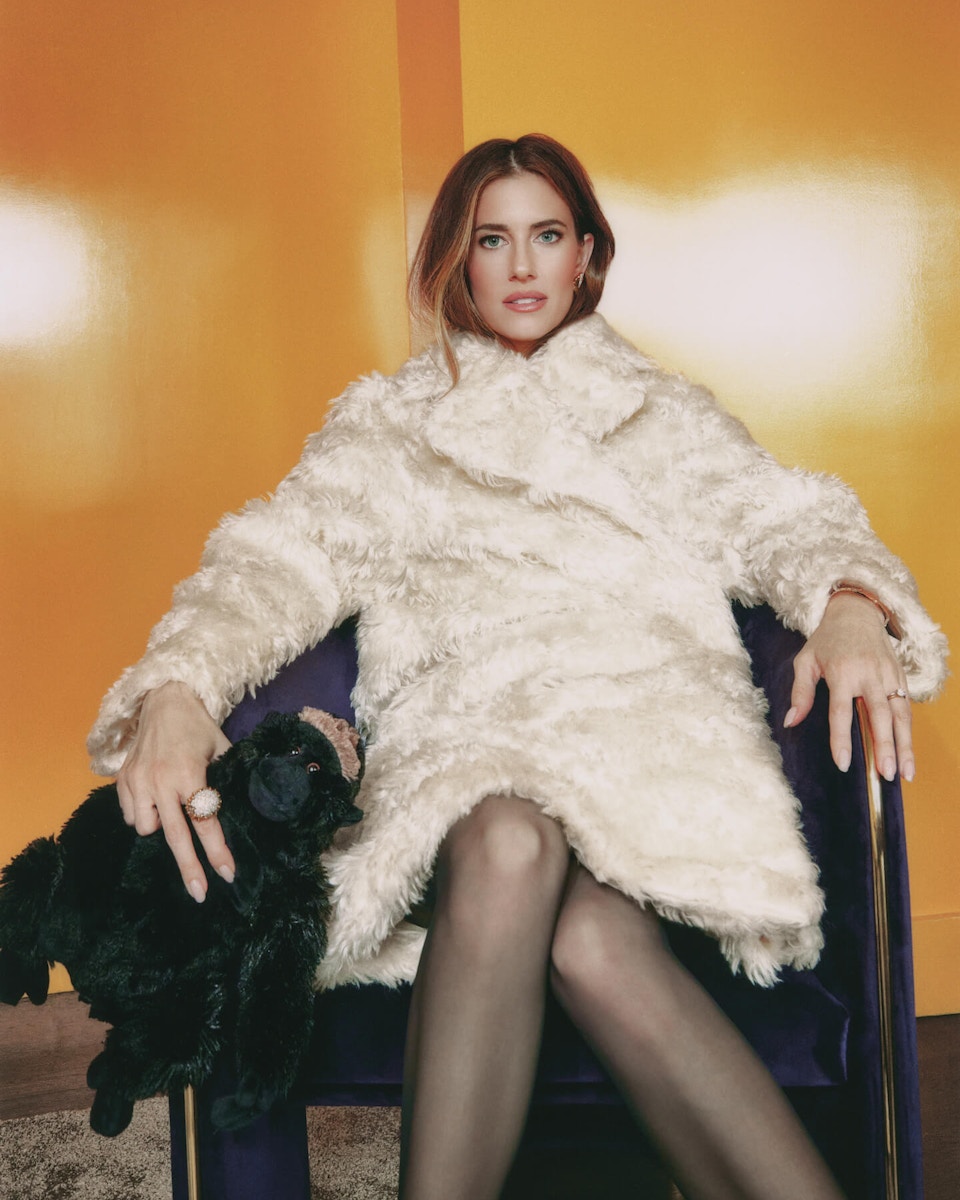
Doing it all is completely impossible, babe!
Arlo loves using the landline to call my parents. He talks to them like he’s their boss, as if they’ve failed him repeatedly throughout the day. He’ll say, Hi. I’m coming over to your house, and then just hang up without saying goodbye. It’s a real power move. No etiquette, just business. He doesn’t have time. He’s busy.
And watching my parents become grandparents has been unbelievable. They’ve been totally judgment-free, which I hope I can channel someday if I become a grandparent. It must be really hard to resist the urge to say, I did this twice and I know what I’m doing, but they’ve never given unsolicited advice.
They’re part of Arlo’s stability and his home base. When both of your parents are actors who sometimes leave for stretches of time, it’s crucial to have a web of people who feel like home. That hive of familiarity becomes a kind of hammock of comfort. We’re so lucky to have that.
Our nanny, Cara, has also been with us since just before Arlo turned one, and she’s absolutely incredible. A lot of things wouldn’t be possible without her. I think it’s important to say that out loud, because there’s this illusion—especially in our world—that you’re supposed to be doing it all by yourself.
We’re very resourced, and I feel unbelievably lucky, but I also can’t believe how much we expect mothers to do this in a vacuum. There’s a cultural expectation that you should raise children quietly without ever making it anyone else’s problem, and that’s completely impossible.
The many faces of Allison Williams* (excluding Rose from Get Out*)
We talk about mom guilt a lot on the podcast. Jaymie, one of my co-hosts, is our unofficial mom-guilt spokesperson, not because she’s proud of it, but because she’s constantly battling it. It’s that old myth of having it all, which just doesn’t exist. Life isn’t balanced; it’s all amounts, levers, and percentages, which is torture because that looks different for everyone.
I know women who felt lost in the world until motherhood gave them purpose. It defined their direction in a way they really felt seen by. That was not my experience. My experience was more so that I was happy to be able to add motherhood to my identity, which meant nudging some other things aside to make room for mom as one of my job titles.
I remember wondering if I would still care about my job after I had Arlo. I honestly didn’t know. And then I did. I still cared so much. I love what I do.
All of the characters I’ve played are a little like me in slightly different ways. Other than Rose from Get Out. That feels important to say, since she and I don’t have a lot in common, though I related to the person she’s pretending to be for most of the movie.
Gemma in the M3GAN movies is sort of like me but with no EQ (like, way dialed down) and with narcissism and entitlement turned up. And Marnie and I kind of grew up together. Marnie is like me but with more bravery, less ability to read a room, maybe less self-awareness. It’s weird because it kind of sounds like I’m complimenting myself while describing these other characters, and I’m not trying to do that.
The trend in acting used to be performances where someone completely transformed, gained or lost weight, wore prosthetics, whatever. I think that would be a fun challenge to try one day. But for now, I really like playing characters who are shades of me.
Makeup by: Benjamin Puckey
Hair by: Xavier Velasquez
Nails by: Pattie Yankee
Styling credits:
Jean Paul Gaultier
Rocha
Dries Van Noten
Saidian Vintage Jewels